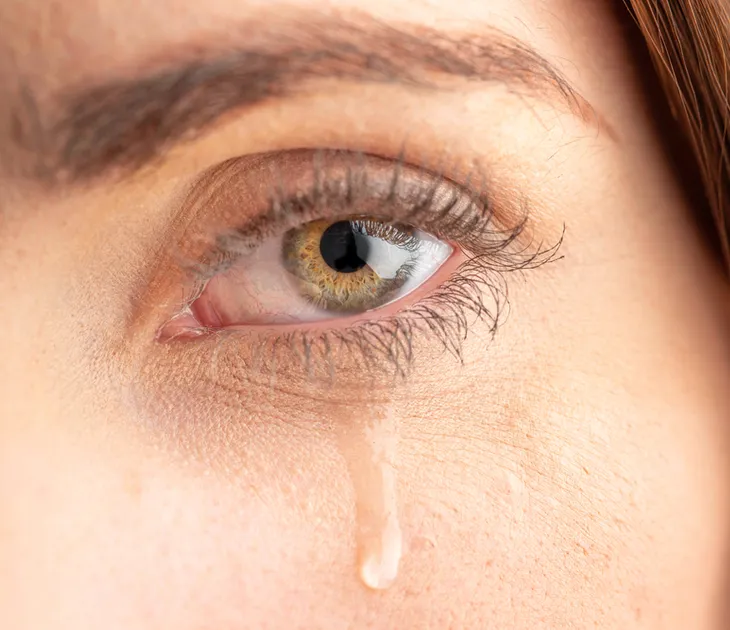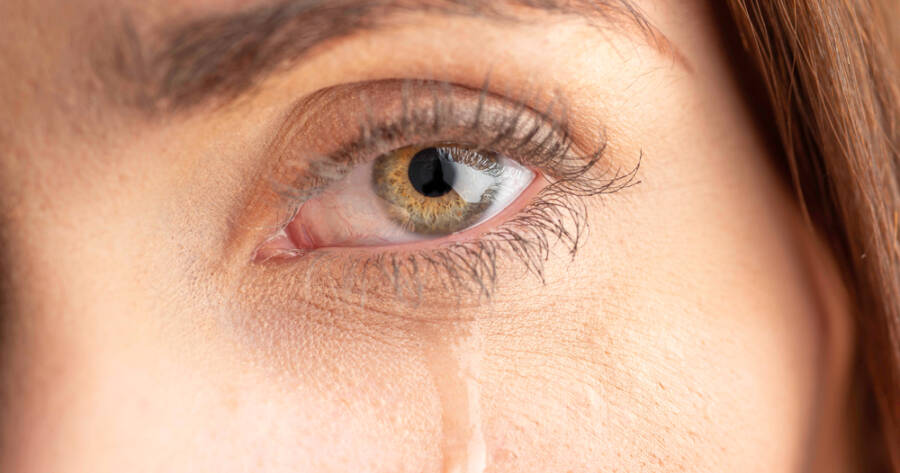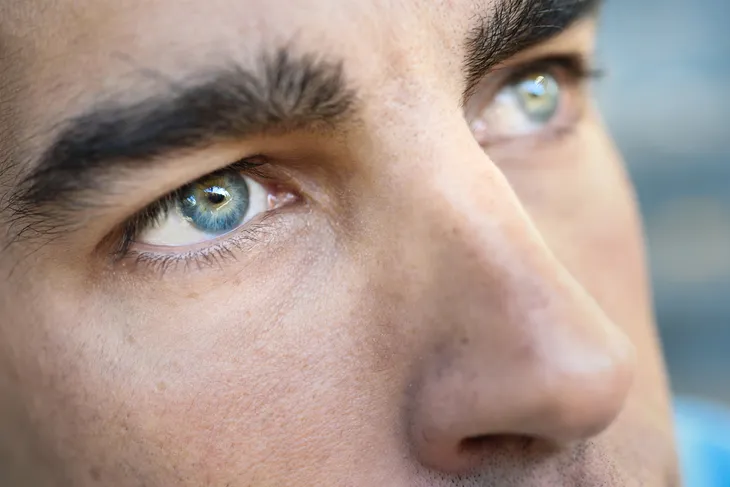Curious Kids is a series for children of all ages. If you have a question you’d like an expert to answer, send it to curiouskidsus@theconversation.com.
Can you cry underwater? – Rosie, age 17, Bedford, New Hampshire
Your eyes are constantly coated by tears, made of oil, water and mucus.
When someone is emotional, their eyes make extra tears to let people know they are unhappy, hurting or even overjoyed. Crying releases natural chemicals in the body like endorphins that produce feelings of happiness and reduce pain, and oxytocin, a hormone that helps people feel bonded with others and builds trust and love. A good cry can help you feel better.
The tears themselves are also helpful in many other important ways. I am a pediatric ophthalmologist – a doctor who specializes in the treatment of children’s eyes. Tears are an important part of my job, and they are vital to maintaining healthy eyes, even when you are asleep at night or swimming in a pool.
Tears keep eyes moist and healthy
Tears are produced by the lacrimal glands, or tear glands, in the upper eyelids and below the eyebrows. Their main job is to keep the eyes lubricated and protected.
Tears gently wash across the eyes all the time to prevent them from drying out. Whenever you blink your eyelids, you are helping tear film spread out over the surface of your eyes to keep them moist. If you wear comfortable contact lenses, the lenses actually float on this layer of tears. If there are too few tears, your contacts can stick to your eyes and become quite uncomfortable.
When you are asleep, you make fewer tears. But they are still working to keep your eyes moist so when you wake up your eyes will focus well – even though you might also need glasses to see clearly. Tears also lubricate the eyes to help the eyelids blink smoothly and avoid scratching the eyes – a bit like turning on the water for a swimming pool slide so you don’t stick to it.
Tears wash away dust, smoke, bugs and other stuff that may get into the eyes. When someone has allergies to plants or pets, tears help to wash away the irritants. They help to prevent eye infections, and when someone does get a pinkeye infection, tears help to kill the germs and wash them away. Finally, tears are important for carrying nutrients from the bloodstream to the eyes so they stay clear and healthy for life.
Tears in a watery environment
When you are swimming underwater, your tears are still there. You can still cry underwater, even though the water will wash tears away quickly.
Since most water where you’d take a dip contains eye irritants like chlorine, bacteria or sand, swimming with your eyes open will cause your tear glands to produce tears to wash them all away. Wearing goggles or keeping your eyes closed underwater would help protect your eyes and keep them more comfortable.
Tears can help to wash the chlorine in pool water and salt in ocean water from your eyes so they don’t feel scratchy for too long once you’re on dry land.
 Shutterstock/Microgen
Shutterstock/MicrogenWhere do tears go?
Some tears will evaporate. You also have tear ducts in the inner corners of your eyes that are like drains for your tears to flow into. Tear ducts carry away old tears into your nose and then to your throat, where you swallow them. That’s why when you cry a lot, your nose will run. And sometimes when you use eye drops, you can taste the medicine on the back of your tongue.
Some babies have blocked tear ducts when they’re born. All their tears flow down their cheeks instead – their constantly watery eyes make it look as if they are crying, even when they are not upset. Doctors can help these babies get their tear ducts open so their eyes look bright and healthy.
Sometimes tear glands produce fewer tears when a person gets older. With fewer tears, eyes can burn and feel scratchy all the time. That’s one reason some adults use drops called artificial tears to help their own natural tears keep their eyes moist and more comfortable.
 Shutterstock: Chris Harwood
Shutterstock: Chris HarwoodHello, curious kids! Do you have a question you’d like an expert to answer? Ask an adult to send your question to CuriousKidsUS@theconversation.com. Please tell us your name, age and the city where you live.
And since curiosity has no age limit – adults, let us know what you’re wondering, too. We won’t be able to answer every question, but we will do our best.
Geoffrey Bradford, Professor of Pediatrics and Ophthalmology, West Virginia University
![]()
This article is republished from The Conversation under a Creative Commons license. Read the original article.




